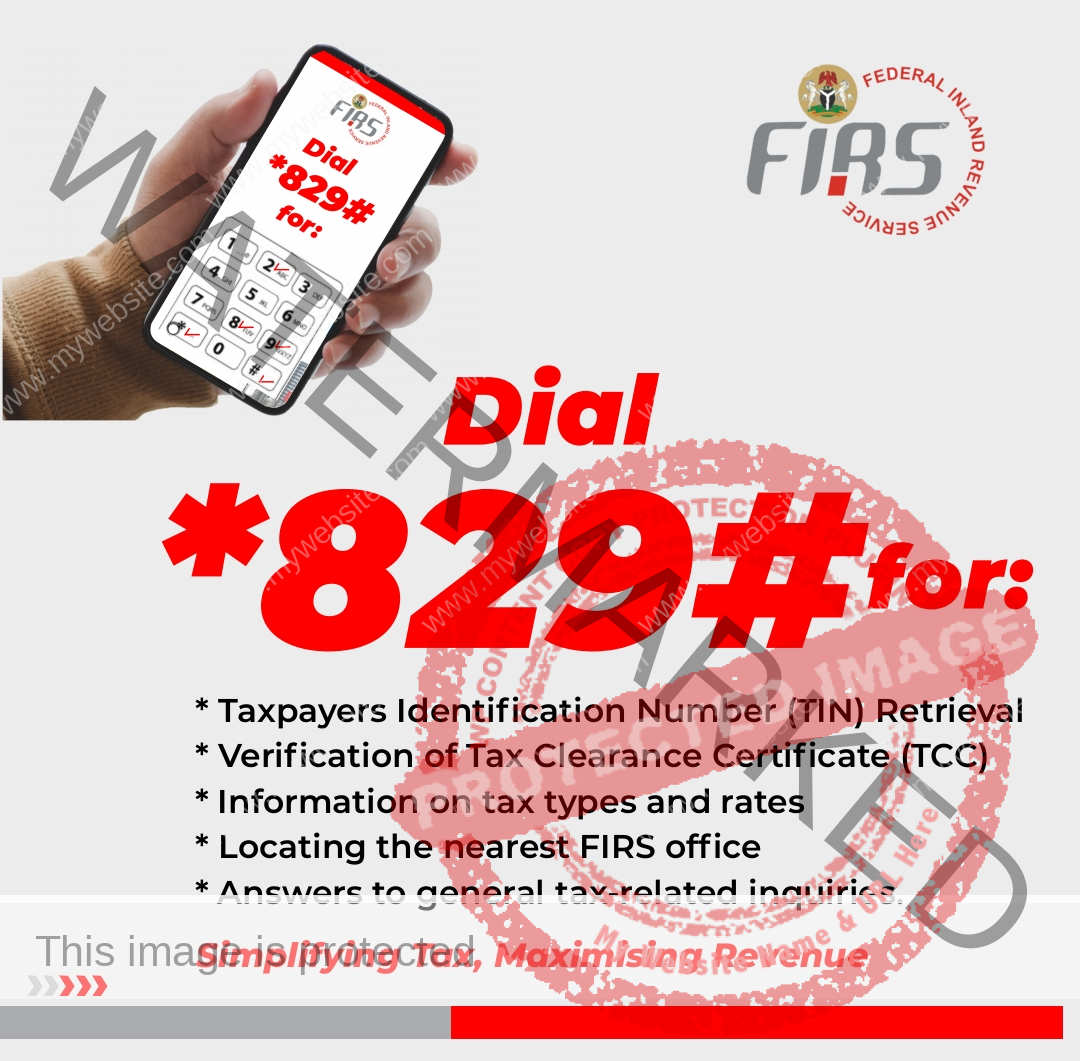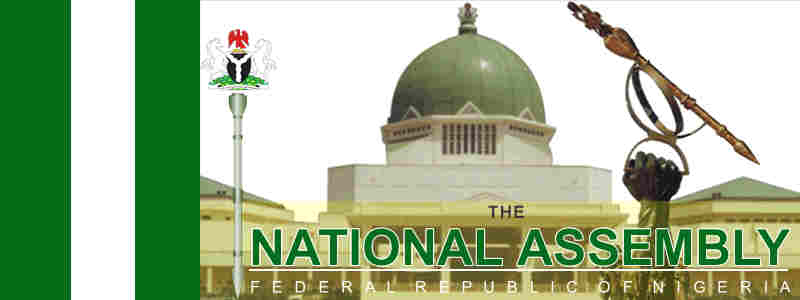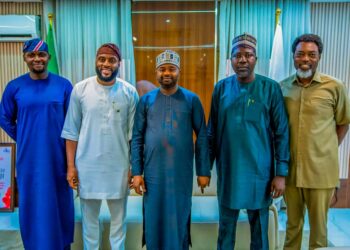


The report of the joint committee on constitution review was laid at both chambers last week by the ad hoc committees constituted to review the Constitution.
The Senate and the House of Representatives will on Tuesday vote on 68 proposed amendments to the 1999 Constitution.

Both chambers will vote separately on the bills on the amendments during their plenary sessions.


The report of the joint committee on constitution review was laid at both chambers last week by the ad hoc committees constituted to review the Constitution.
The Committe of the Senate chaired by the Deputy Senate President, Ovie Omo-Agege, that of the House led by the Deputy Speaker of the House of Representatives, Idris Wase, had laid the report after harmonising their areas of differences.
For the amendment and voting process to be successful, two-third membership of the entire Senate (or House) is required. And some provisions require four-fifth membership of the chamber.

The lawmakers are expected to vote electronically.
After the voting process, the bills that are approved, will be sent to the 36 states for votes.
It is mandatory that each alteration passed by the National Assembly must receive support of simple majority of votes in at least two-thirds of State Houses of Assembly in the federation. And the amendments that receive such approvals, will be sent to the president for assent.
Below are some key amendments that will be voted on.
· Bill to abrogate state and local governments joint accounts
The bill seeks to alter the Constitution to repeal the state joint local government account and provide for a special account where all allocations due to the local governments councils, from the Federation Account and state government shall be paid.
In the bill, each local government council is to create and maintain its own special account to be called Local Government Allocation Account into which all the allocations will be paid.
Sponsored by late Cross River senator, Rose Oko, it mandates each state to pay to local government councils in its area of jurisdiction such proportion of its internally generated revenue on such terms and in such manner as may be prescribed by the House of Assembly.
· Financial autonomy for State Assemblies and Judiciary
This bill seeks to alter the Constitution to provide for the financial independence of State Houses of Assembly and state judiciary.
The struggle for financial autonomy for state Houses and judiciary has been a long one, which dates back to 1999. When the Constitution was amended in 2010 and the bill passed, only 23 of the 36 assemblies passed the bill thus not meeting the two-third mark required.
The lawmakers are including a new clause in Section 121(3) of the Constitution to read “Any amount standing to the credit of the – House of Assembly of a State and the Judiciary of a State; in the consolidated Revenue Fund of the State shall be paid directly to the said bodies and in the case of the judiciary such amount shall be paid to the heads of the courts concerned.”
· Legislative summons
As the name suggests, the legislation seeks to alter the Constitution to compel persons to obey or comply with legislative summons.
It also stipulates penalties for offenders of this law.
· Pension for top lawmakers
This controversial and newly introduced bill seeks to grant life pension to presiding officers of the National Assembly.
These include the Senate President, Speakers of the House of Representatives and their deputies.
Many Nigerians have kicked against the bill as they say Section 84(5) of the Nigerian constitution which guarantees life pension for all former presidents and vice-presidents, already costs about N7.8 billion annually.
· Remote trials
The bill seeks to alter the constitution to legalise virtual court proceedings. This will allow court or tribunal proceedings to be conducted remotely, online or through any media platform or technological innovation.
Sponsored by Ekiti senator, Opeyemi Bamidele, the legislation seeks to amend Section 36 of the Constitution to allow for these provisions.
· Diaspora voting
The alteration bill seeks to provide the right for Nigerians in the diaspora to vote during elections.
The bill sponsored by the Chairperson of the House Committee on Diaspora Affairs, Tolulope Shadipe, seeks to amend sections 77 and 117 of the Constitution.If passed, the Nigerian communities in the Diaspora will be eligible to vote.
· Extra Seats for women
The bill, sponsored by Nkeiruka Onyejeocha (APC, Abia) and 119 members, seeks to alter sections 48, 49, 71,77,91, and 117 of the 1999 constitution by creating one senatorial seat and two federal constituencies in each state and FCT for women.
It also seeks to amend section 91 of the 1999 Constitution by creating an additional 108 seats in the state houses of assembly for women.
· Independent candidacy
The independent candidacy bill is another bill from the last Assembly. The alteration bill which seeks to amend the Constitution to allow citizens to run for office without being sponsored by a political party was considered in the 8th Assembly.
The Chief Whip of the House, Mohammed Monguno (APC, Borno), reintroduced the bill for consideration.
· Office of the Mayor for FCTA
The House of Representatives is considering a constitution alteration bill to change the administrative structure of the Federal Capital Territory.
The bill, sponsored by Dachung Bagos (PDP, Plateau), seeks to remove the President as the Chief Executive Officer of the FCT and opt for an elected Mayor to administer the capital city.
· Termination of tenure of elected officials for carpet crossing
This proposed amendment seeks to provide the process for termination of tenure of certain elected officials on the account of changing political parties.
PREMIUM TIMES had in a report detailed the alarming trend of carpet crossing in the green chamber.
· Power to summon President, governor
This alteration seeks to empower the National Assembly and State Houses of Assembly Powers to summon the President of the Federal Republic of Nigeria and Governors of States to answer questions on issues on which the National and State Houses of Assembly have the power to make law respectively.
In 2020, the House of Representatives had attempted to summon President Muhammadu Buhari over general insecurity in the country.
Mr Buhari had turned down the invitation, and the Attorney-General, Abubakar Malami, had stated that the National Assembly does not have such powers to summon the President.
It was also reported that state governors prevailed on the president not to honour the invitation to avoid setting a precedent that state Houses of Assembly can rely on.
This bill, if passed, will give the National Assembly and the sub-national parliaments the constitutional rights to issue summons to presidents and governors.
· Immunity for Senate President, Speaker and their deputies
With this bill, the lawmakers are seeking to confer immunity on the heads of the two chambers and their deputies from prosecution.
Despite the outcry against the current immunity enjoyed by the executive, the lawmakers also seek to extend that controversial law. The House Committee had earlier decided to step down the bill, but later backtracked and recommended it to the House.
· Timeframe for appointing ministers
The bill mandates the president to send ministerial nominees to the Senate within 30days.
In 2015, it took Mr Buhari about six months to nominate ministers and in 2019, he took another two months to form a cabinet.
This proposed amendment seeks to end such wait. A President must send his/her ministerial nominees to the Senate within 30days. Same applies to the governors in the case of commissioners.
· Expanding the scope of citizenship by registration
In the Constitution, a foreign woman married to a Nigerian man gets automatic rights to become a Nigerian by registration. This constitutional right is not extended to a foreign man married to a Nigerian woman.
This bill seeks to amend section26 (2a) of the 1999 constitution, by opening citizenship registration to males and females.
· Separating office of the Attorney-General from the Minister of Justice
This bill seeks to separate the Office of the Attorney–General of the Federation and of the State separate from the Office of the Minister of Justice or Commissioners for Justice of the state in order to make the Offices Attorneys.
It seeks to make the Offices of the Attorney Generals at both federal and states to be independent and insulated from partisanship.
This bill has become a recurring one in the National Assembly. It was considered in the 7th and 8th Assembly but was defeated. Now the 9th Assembly is considering it.
· Moving VAT to exclusive legislative list
This amendment seeks to make Value Added Tax an item on the Exclusive Legislative List. This means only the federal government can collect and make laws on VAT.
VAT collection is currently a matter of dispute between the federal government and some states like Rivers and Lagos.
Both the Lagos and Rivers States Houses of Assembly had passed laws allowing them to collect VAT in their respective states. However, the Court of Appeal had ruled that all the parties involved should maintain the status quo.
[Premium Times]













